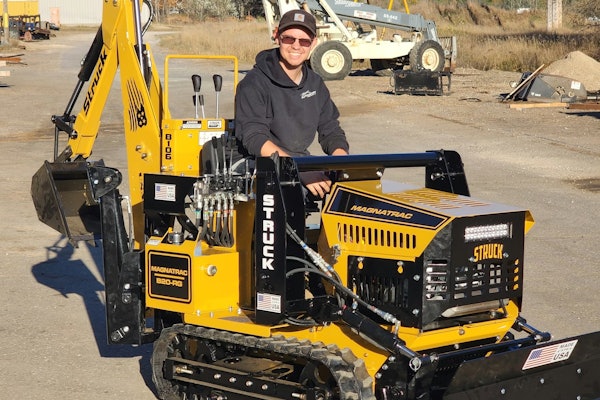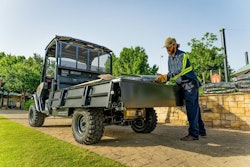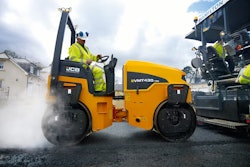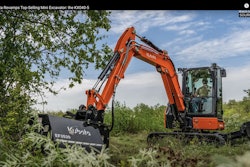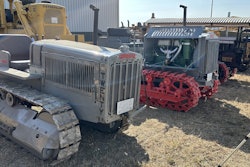
Most of us drivers know what ruts are. They are the impressions in the asphalt of the road that can be a hindrance for safely operating your vehicle in your lane. These ruts can make it difficult to change lanes safely and, if you are not paying attention, can guide you in a direction you really do not want to go.
Ever felt like your life was in one of those ruts? Every day is the same, and you feel like you’re taking just one step forward for every two steps back? I know I have. And a few months back, during a conversation with the owner of the company I am leased to, I realized this is a common occurrence for drivers. After all, we have nothing if not plenty of time to think as we check off the miles. Sometimes, of course, we get plenty more of that done than we need to.
Don, who was a trucker for many years, described it as “going down the road watching the movie of your life play out on your windshield, until before you know it the miles have passed away, or you cannot remember the last hundred miles, when you come back to reality.” Been there, done that. In the psychology field we call this mindlessness. We are conscious, of course, because we are getting the job done, yet our mind is not actually aware, in the sense that we have lost track of the miles. Our focus is not 100 percent on the job. We are operating on the border of our consciousness and our subconscious.
There are many things in a driver’s life that may contribute to this state — relationships both personal and work-related, the motorist that cuts us off or boxes us in, our broader mental or physical health. Or nothing more than the voices in our heads. You know, the ones that point out all your faults, or build up what we perceive others are thinking and saying about us and our past failures. Those voices that never seem to remember anything that we’ve overcome for the better.
Thus preoccupied going down the road is, well, none-too-safe driving — if we’re not fully aware of our surroundings and the task at hand, reaction time is definitely affected.
However, we can change this through mindfulness practices. And I know, I know, you’re old-school and don’t have the time for all that new-age malarkey. Right?
Consider that mindfulness practices are not new, nor is outright meditation for that matter — often confused with mindfulness as it is. Both are proven to be beneficial to your mental and physical health, and while meditation can be included in mindfulness practices, it is not necessary to practice mindfulness.
How about I use another term that most of you are probably already plenty familiar with — situational awareness.
Those that come to it naturally do make better drivers, cops, federal agents or military personnel. That’s one reason veterans often go on to make great professional drivers. Anyone who has trained potential drivers knows situational awareness doesn’t always come naturally to everyone. Yet it can be nurtured through repetition, maturity and mindfulness practices. Given most of us pilot 80,000 lbs. down the road for several hours a day, meditation is pretty much off-limits for that time. Mindfulness practice, however, is simply being aware of and fully sensing what we are feeling in the moment, without judgement or interpretation. It is a way of being, now, and releasing negative feelings, self-judgement and/or preconceived impressions of others (often unfounded misperceptions) so that we keep our minds fully in the present.
There is a time we can step back, preferably when you are not operating heavy machinery, and evaluate those feelings, or negative voices in our head, and file them in the storage centers of the brain — the trash bin for those that deserve, or the recycle bin for future reference. After all, those who disregard history are doomed to repeat it, right?
This is also how humanity has survived with constant adaptation, though so many of us are guided by the parts of our brains responsible for immediate reaction. We live a too-reactionary life on account, rather than one of progress.
What is a progressive life? It’s one in which you can look inside yourself and grow from experiences instead of being stunted by them. It’s also how we may finally reach the highest level of self-actualization that Maslow spoke in his hierarchy of needs as an ideal. Mindfulness helps us take stock, grow and mature. It is very good at helping us release stress and anxiety, while helping us live a more peaceful life of contentment — an adopted attitude. Attitude, ultimately, might well be 90 percent of the battle, and contentment is cultivated by gratitude, another element of of mindfulness.
Meditation can be part of getting you there when you are not driving. But when you are, practice self-acceptance, identify emotions and why you’re feeling them. This practice can keep us in the present moment and help us learn from the experience, instead of feeding the emotions and reliving the past repeatedly. This is how we adopt a mindset of learning and self-actualization.
You’ll be an even more safe driver, too. Your reaction time will improve, because your situational awareness will improve. You will also notice a pleasant side effect of mindfulness — better physical health, improved relationships and self-ownership.
Your boss, if you have one other than yourself, and your significant other — I guarantee it — will thank you.



